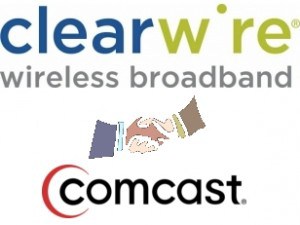The Communications Workers of America (CWA) has been running a project I have subscribed to for awhile now, called Speed Matters. Today I received this e-mail from them:
What’s next for SpeedMatters? Growing our movement.
Dear Jason,
Time’s up. Pencils down.
How did you do on the SpeedMatters.org speed test?
Believe it or not, you had one of fastest connection speeds in the country – and you’re probably paying a pretty penny for it. The majority of people who took the test didn’t come close to scoring as high as you did.
But fact is, even some of the fastest internet connections in the United States pale in comparison to many of our global competitors like Korea, Sweden, and Japan. These countries have average speeds that are almost ten times faster than the United States — at about 1/12 the cost to the consumer.
FCC Commissioner Michael J. Copps has admitted “America’s record in expanding broadband communication is so poor that it should be viewed as an outrage by every consumer and businessperson in the country.”
It’s time to fix this problem, and the first step is determining exactly where our current high speed networks reach — and who is getting left behind.
You’ve already helped us begin to gather this crucial data by testing your Internet speed.
So what’s next? Now you can help grow our movement and educate as many people as possible about the importance of improving our country’s high speed Internet access. That way, when we demand our elected representatives take action, they’ll hear us loud and clear.
Forward the message below to everyone you know, and ask them to join you in getting the U.S. up to speed.
Thank you,
Beth Allen
speedmatters.org Online Mobilization CoordinatorP.S. Don’t forget to sign up for our weekly SpeedMatters.org blog update email to stay up-to-date on the nationwide effort to expand high speed Internet access and the amazing things that people are doing with the improved technology.
Dear Friend,
Americans are charged more for slower internet speeds, and our current high-speed networks don’t even reach millions of households. It’s time for that to change — and you can play a part. Testing your own speed will help make our new community research project, SpeedMatters.org, a success.
We’re falling behind in the global economy because we won’t invest in the technology to bring the benefits of this telecommunications revolution to most of our population. We’re the only industrialized country without a national policy to promote high- speed Internet access.
That’s why you’re getting this email. Testing your connection’s speed now will help us better understand the American average — and craft an effective public policy and awareness campaign.
Take the speed test:
High speed Internet means more than smooth web videos or fast downloads.
Advanced high capacity communications networks can increase democratic and civic participation, improve the delivery of health care, education, job training, public safety and other vital services.
What are we waiting for? It’s time to close the digital divide.
Thanks!
What I found interesting was the quote from FCC Commissioner Michael Copps, “America’s record in expanding broadband communication is so poor that it should be viewed as an outrage by every consumer and businessperson in the country.”
Commissioner Copps is right. It is an outrage. When the rest of the world is moving on average 10 times faster and at 1/12 the cost to consumers, I am a little more then outraged. Speed does matter and I urge you all to join and spread the word about Speedmatters.org. They have a lot of useful information at their site, including speed by state and listing of broadband initiatives.
I took the speed test here in Greensboro, North Carolina, using Time Warner Cable’s Road Runner Turbo and my results were 11.114Mbps download and 4.85Mbps upload. What is your speed?
I know here in Greensboro, the CWA had tried to to unionize the local Time Warner Cable workers and the company pushed back and won. Now a lot of those same TWC employees have been pink slipped in favor of non-union contract workers or demoted to lesser positions with less pay. I am sure this isn’t the only city this is happening in. Just goes to show that TWC isn’t just effecting your families with their greed, but their own workers’ families too.
The only downside to this organization I see is that they have a partnership with Connected Nation, which is the cable/telecom industries mapping group. I would urge the good folks at the CWA to tread lightly with Connected Nation. They are Time Warner, Comcast, AT&T, Verizon, and the other companies in disguise. They have their own interests at heart. This is what Connected Nation is doing here in North Carolina.


 Subscribe
Subscribe



